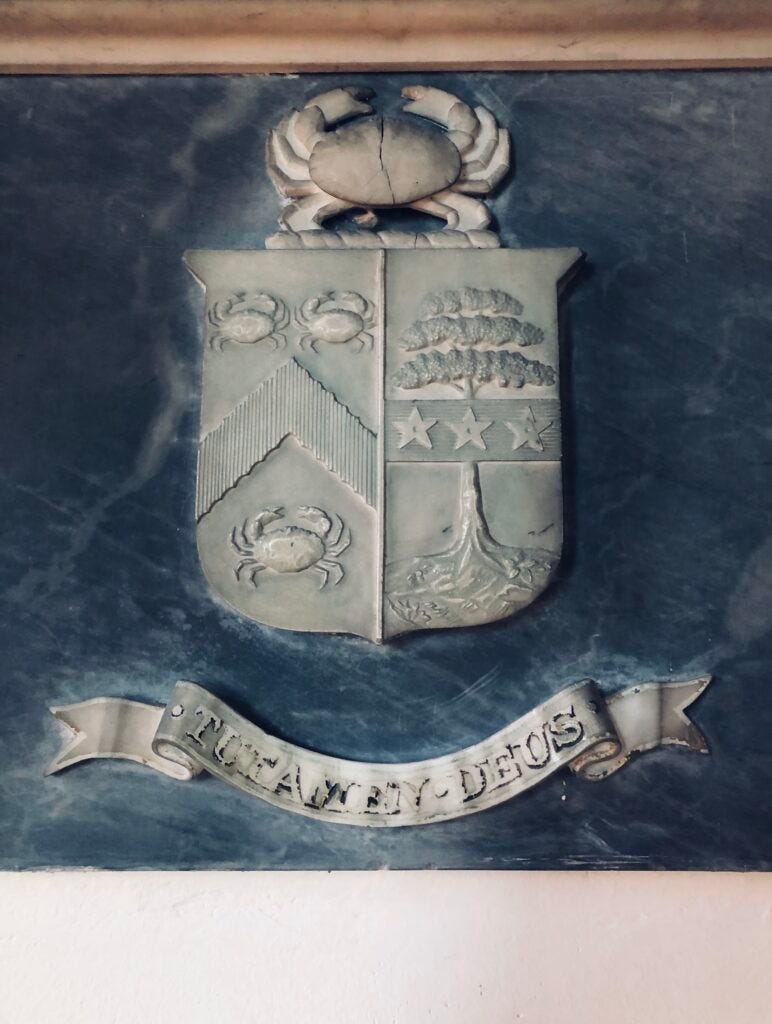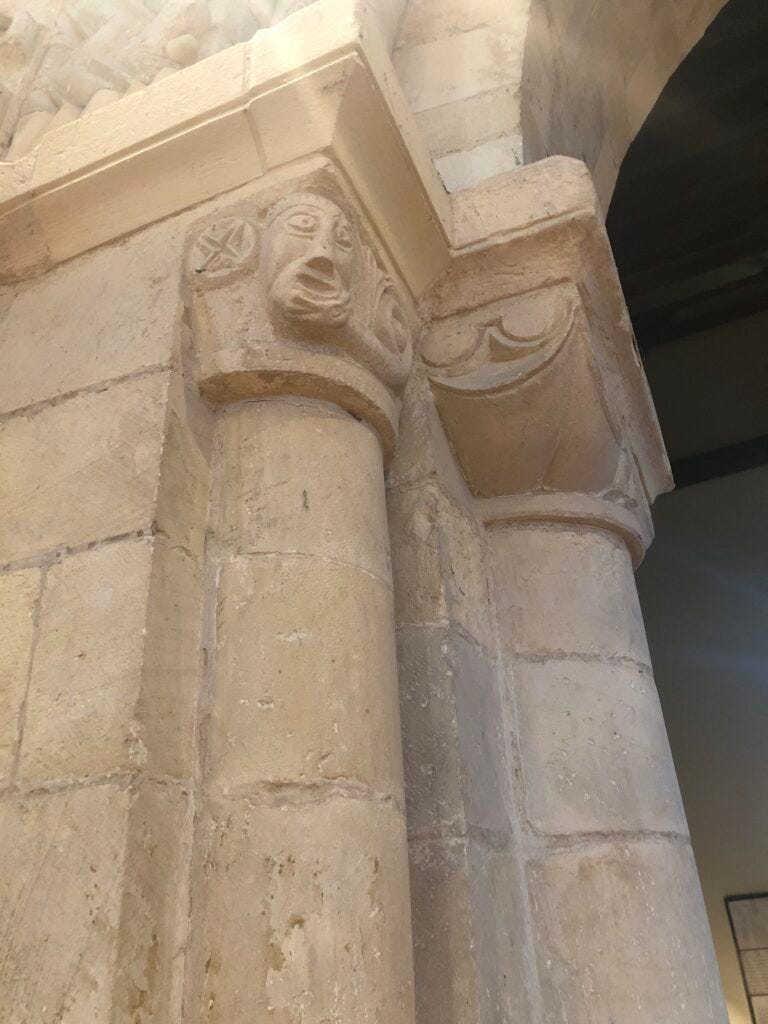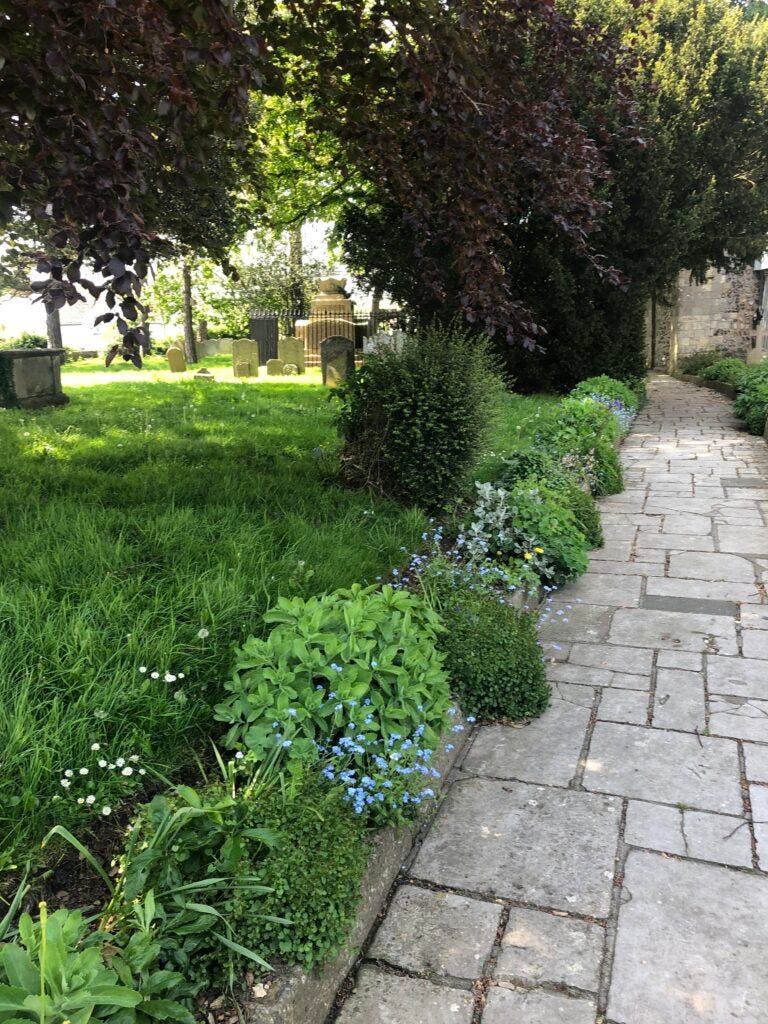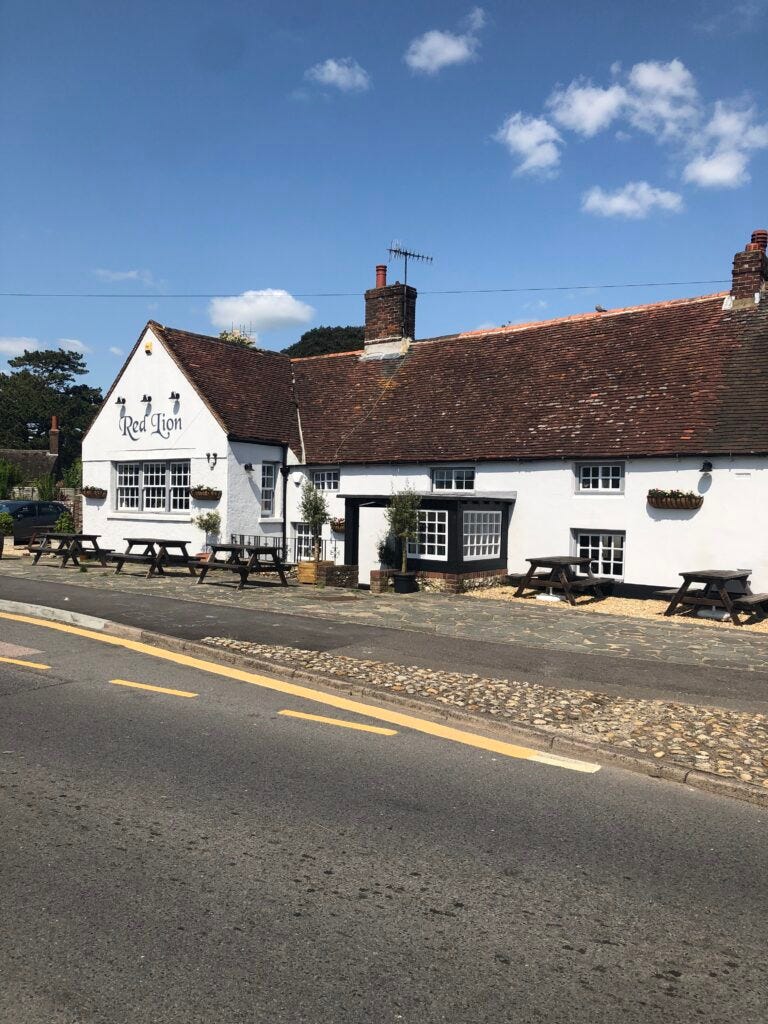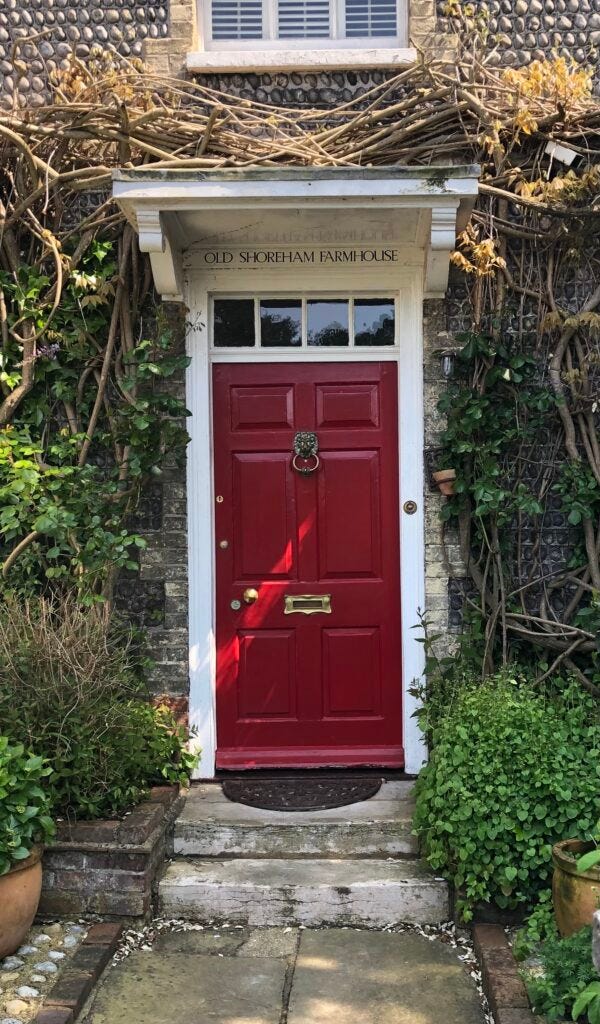Old Shoreham, Shoreham by sea, Shoreham Beach
Old Shoreham, Shoreham by sea and Shoreham Beach
It was more by accident than design that my parent's chose to Shoreham. Itinerant teachers following work they may never have intended to stay here. But as the years passed they settled, coming to rest like an old fishing boat softening into the mud as the decades passed. Back then Shoreham it was a Cinderella town, eclipsed by gentile Worthing to the West (God's waiting room as Dad called it) and the bright lights of continent mad Brighton to the East. Like an old queen cat between two puppies, Shoreham has always known it does not need to prove itself. It has no need to grasp Brighton's tiara of brash carnival lights, nor does it lean on being snooty or aloof to give itself the semblance importance. It is steeped in its own history, its own story, its mysteries and its own magic. Ask questions of its past and it will send you down warren holes, into Roman, Saxon, Norman history and beyond, into literature, art and witchcraft. It is not so tatty as when I grew up, it is quite desirable now. But its charm has remained intact, if anything it is even more delightful. It is no sleepy town filling up with pensioners. It is bustling with artists, potter, writers, mothers in prams, natterers enjoying a coffee and a cake. They basking in the sun in which Shoreham is always bathed be it finding a sheltered spot in bright winter sunshine, or spotting some shade in blazing sun of high summer. Eclipsed no longer but still over shadowed by by it's neighbours it is still bypassed. Its name whispered only by the cognoscenti with a tap of the nose. So lean in, let me whisper about a backwater, a lagoon, on the Sussex coast and perhaps one day, you'll catch the train from Victoria, or take take a drive along the coast. Or pick up a book and get lost in a love story set here decades ago.
First up it has to be sleepy, spooky, magical Old Shoreham
Oh it's old alright. It's so old. What remains of Old Shoreham sits on the banks of the sluggish tidal River Adur, a river that swells in a rising tide and then thins to a trickle at its ebb. A river fed by spring and sea. Ptolemy speaks of a tribe, the Regni, who traded with the Romans way back in the day. Perhaps they thought the Romans were restocking warehouses when they slipped up this river intent on conquering Britain under Emperor Claudius. With the sack of Rome in 410 the Roman Empire toppled but traces of Roman roads, villas and dropped coins remain. Next up were the Saxons. Christianity began to flourish and in 850AD the Saxons built St Nicholas church. The brutal pagan Vikings followed, causing havoc until the Normans came marching through. They set to work. Sussex was divided into Rapes, this the rape of Bramber. Castles were erected and churches built. St Nicks Norman church is built onto of Saxon stone. The river silted up. Vessels became bigger requiring a deeper draft and the centre of Shoreham drifted away south. But the heart of Old Shoreham remains, in its ancient Saxon-Norman church, its sinking pub and the farmhouses that speak of older times.
A stones throw from St Nicks is the Red Lion Pub. Its self built on from the remains of a monastery. The pub is ancient too so sunk with age that it seems already half interred. Sit outside with the cyclists and the dog walkers and you have ahead the Norfolk bridge, the river and the monument to those killed when a plane exploded in a ball of fire in 2015.
This is a highway man, a smuggler's pub. The pub's website says it best -The inn was central to a locally famous tragedy which gained wider recognition when Alfred, Lord Tennysonwrote a poem, Rizpah, based on it.[5] On 1 November 1792, the driver of the local mail coach had to deliver a letter containing half a sovereign (approximate value £60 as of 2023)[6] on his usual route between Brighton and Shoreham. At Hove he was robbed by two Shoreham men, one of whom went on to the Red Lion to meet drinking companions. He was heard discussing the crime by Phoebe Hessel, a well-known Brighton resident who frequented the inn. She reported him to the local parish constable, who arrested both men.[4][7]The robbery had involved no violence, but the men were sentenced to death at Horsham Assizes: they were tied to horses and sent there accompanied by a military and police escort. On 26 April 1793 a large crowd watched as they were hanged at the place where they robbed the mail coach; their bodies were dressed and left to rot on the gibbet.[7] The younger man's mother was so distraught that she travelled every night to Hove to collect the decaying bones and flesh, and eventually interred them in the graveyard at St Nicolas' Church.[5]
Another bizarre event involving a dead robber occurred at the inn in the 1850s. A man burgled several houses in Shoreham, but when he broke into Buckingham House (an 18th-century mansion with a history dating back to the mid-17th century or earlier)[8] he was shot dead. Nobody could identify him, so his body was placed in a glass-topped coffin and left at the inn in case any visitors recognised his face.[9] Hundreds of people travelled to Shoreham to inspect the coffin, but the man was eventually identified by his dog, which appeared at the inn, saw the man's face and sat by the body, refusing to leave it.[10] The robber was identified as John O'Hara and was buried at St Nicolas' Church.[10]
A tradition called "The Bushel"—a drinking custom held on New Year's Day—lasted for much of the 19th century at the Red Lion: it was last documented in 1883.[1][11] A bushel of beer was covered with greenery and flowers so that when the beer was poured in, the head erupted in a cauliflower shape. The beer was then doled out to all comers, and the "chairman" in charge of the festivities was then allowed to drink from the bushel.[
And here the poem referred to:Alfred, Lord Tennyson
647. Rizpah
17—
WAILING, wailing, wailing, the wind over land and sea—
And Willy’s voice in the wind, “O mother, come out to me!”
Why should he call me to-night, when he knows that I cannot go?
For the downs are as bright as day, and the full moon stares at the snow.
We should be seen, my dear; they would spy us out of the town.
The loud black nights for us, and the storm rushing over the down,
When I cannot see my own hand, but am led by the creak of the chain,
And grovel and grope for my son till I find myself drenched with the rain.
Anything fallen again? nay—what was there left to fall?
I have taken them home, I have number’d the bones, I have hidden them all.
What am I saying? and what are you? do you come as a spy?
Falls? what falls? who knows? As the tree falls so must it lie.
Who let her in? how long has she been? you—what have you heard?
Why did you sit so quiet? you never have spoken a word.
O—to pray with me—yes—a lady—none of their spies—
But the night has crept into my heart, and begun to darken my eyes.
Ah—you, that lived so soft, what should you know of the night,
The blast and the burning shame and the bitter frost and the fright?
I have done it, while you were asleep—you were only made for the day.
I have gather’d my baby together—and now you may go your way.
Nay—for it’s kind of you, madam, to sit by an old dying wife.
But say nothing hard of my boy, I have only an hour of life.
I kiss’d my boy in the prison, before he went out to die.
“They dared me to do it,” he said, and he never has told me a lie.
I whipped him for robbing an orchard once when he was but a child—
“The farmer dared me to do it,” he said; he was always so wild—
And idle—and couldn’t be idle—my Willy—he never could rest.
The King should have made him a soldier, he would have been one of his best.
But he lived with a lot of wild mates, and they never would let him be good;
They swore that he dare not rob the mail, and he swore that he would;
And he took no life, but he took one purse, and when all was done
He flung it among his fellows—“I’ll none of it,” said my son.
I came into court to the judge and the lawyers. I told them my tale,
God’s own truth—but they kill’d him, they kill’d him for robbing the mail.
They hang’d him in chains for a show—we had always borne a good name—
To be hang’d for a thief—and then put away—isn’t that enough shame?
Dust to dust—low down—let us hide! but they set him so high
That all the ships of the world could stare at him, passing by.
God’ll pardon the hell-black raven and horrible fowls of the air,
But not the black heart of the lawyer who kill’d him and hang’d him there.
And the jailer forced me away. I had bid him my last good-bye;
They had fasten’d the door of his cell. “O mother!” I heard him cry.
I couldn’t get back tho’ I tried, he had something further to say,
And now I never shall know it. The jailer forced me away.
Then since I couldn’t but hear that cry of my boy that was dead,
They seized me and shut me up: they fasten’d me down on my bed.
“Mother, O mother!”—he call’d in the dark to me year after year—
They beat me for that, they beat me—you know that I couldn’t but hear;
And then at the last they found I had grown so stupid and still
They let me abroad again—but the creatures had worked their will.
Flesh of my flesh was gone, but bone of my bone was left—
I stole them all from the lawyers—and you, will you call it a theft?—
My baby, the bones that had suck’d me, the bones that had laughed and had cried—
Theirs? O, no! they are mine—not theirs—they had moved in my side.
Do you think I was scared by the bones? I kiss’d ’em, I buried ’em all—
I can’t dig deep, I am old—in the night by the churchyard wall.
My Willy’ll rise up whole when the trumpet of judgment’ll sound,
But I charge you never to say that I laid him in holy ground.
They would scratch him up—they would hang him again on the cursed tree.
Sin? O, yes, we are sinners, I know—let all that be,
And read me a Bible verse of the Lord’s goodwill toward men—
“Full of compassion and mercy, the Lord”—let me hear it again;
“Full of compassion and mercy—long-suffering.” Yes, O, yes!
For the lawyer is born but to murder—the Saviour lives but to bless.
He’ll never put on the black cap except for the worst of the worst,
And the first may be last—I have heard it in church—and the last may be first.
Suffering—O, long-suffering—yes, as the Lord must know,
Year after year in the mist and the wind and the shower and the snow.
Heard, have you? what? they have told you he never repented his sin.
How do they know it? are they his mother? are you of his kin?
Heard! have you ever heard, when the storm on the downs began,
The wind that’ll wail like a child and the sea that’ll moan like a man?
Election, Election, and Reprobation—it’s all very well.
But I go to-night to my boy, and I shall not find him in Hell.
For I cared so much for my boy that the Lord has look’d into my care,
And He means me I’m sure to be happy with Willy, I know not where.
And if he be lost—but to save my soul, that is all your desire—
Do you think that I care for my soul if my boy be gone to the fire?
I have been with God in the dark—go, go, you may leave me alone—
You never have borne a child—you are just as hard as a stone.
Madam, I beg your pardon! I think that you mean to be kind,
But I cannot hear what you say for my Willy’s voice in the wind—
The snow and the sky so bright—he used but to call in the dark,
And he calls to me now from the church and not from the gibbet—for hark!
Nay—you can hear it yourself—it is coming—shaking the walls—
Willy—the moon’s in a cloud—Good-night. I am going. He calls.
Magic? I could speak of Snowballs drunk in celebration by three teenage girls, the Musquatits of old. I could speak of trespassing wood nymphs and flashing white late summer storms. But I will end with just the doorway of a Victorian farmhouse, a grand ornate house with strong architectural features and a conservatory with coloured glass at the back . And the Downs in May, a hedgerow of cowslip and nettles, hawthorn and budding elderflower, of blue skies and the rolypoly sheep nibbled fields, unchanged since the days of my maidenhood.
Sources https://www.shorehamsociety.org.uk/history-timeline-for-shoreham/ https://en.wikipedia.org/wiki/River_Adur https://en.wikipedia.org/wiki/Shoreham-by-Sea https://www.roman-britain.co.uk/tribes/regnenses/#:~:text=The%20Regnenses%20tribe%20inhabited%20East,exist%20prior%20to%20Roman%20rule. https://www.shorehambysea.com/simple_machines_forum/index.php?topic=292.0 https://en.wikipedia.org/wiki/St_Nicolas_Church,_Shoreham-by-Sea https://www.shorehambysea.com/simple_machines_forum/index.php?topic=292.0 https://www.sussexexpress.co.uk/news/magnet-for-authors-and-poets-shorehams-rich-literary-past-2322760 https://www.shorehambysea.com/simple_machines_forum/index.php?topic=292.0


